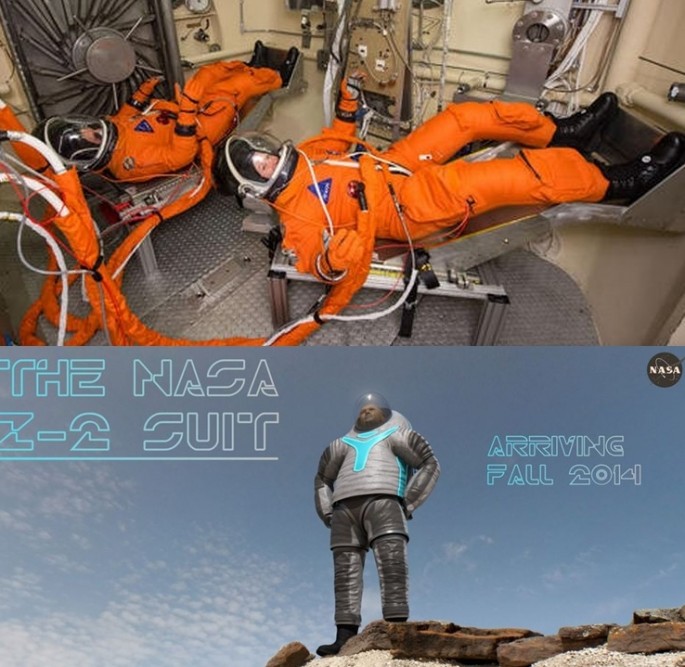NASA is currently testing the two spacesuit designs its astronauts will use when they journey to and when they explore the surface of Mars sometime in the 2030s.
The Mars mission will require two different kinds of spacesuits. One spacesuit will be worn on the long journey to Mars that might take up to nine months on the new Orion spacecraft. The other suit will be worn by the astronauts as they explore the Martian surface. Both spacesuits are different in design, look and features.
The spacesuit to be used on the long space voyage was tested this week at NASA's Johnson Space Center in Houston. Astronauts will wear these familiar looking orange-colored spacesuits aboard the Orion spacecraft on journeys into deep space. The Orion mission will carry astronauts further into space than they've ever been before, possibly to an asteroid, and one day to Mars.
On March 17, members of the Johnson team completed a "Vacuum Pressure Integrated Suit Test" to verify that the suit will meet the standards required to be worn aboard the Orion spacecraft, which was built to carry astronauts to deep space and back.
During the test, the first of four, the engineers suited-up and entered an 11-foot chamber designed to simulate the vacuum environment in Orion. The suit was connected to life support systems and then the air was sucked out of the chamber, said CBSNews.
The suit is a version of the launch and entry suits worn by Space Shuttle astronauts. It will contain all the necessary functions to support life in the unlikely event the spacecraft loses pressure. It will also enable astronauts to leave their spacecraft for spacewalks.
In November 2014, NASA began testing the odd-looking and alien-looking Z-2 prototype spacesuit, whose later designs astronauts might wear on the Martian surface.
The Z-2 is the latest prototype in the next-generation spacesuit platform called the "Z-series" designed for extra-vehicular activity (EVA) being developed under NASA's Advanced Exploration Systems program.
The suits are being designed for both micro-gravity and planetary EVAs. This year, the Z-2 is expected to be tested in a human-rated vacuum chamber and the Neutral Buoyancy Lab, the huge indoor pool used to train astronauts to spacewalk.
Further testing at a site at Johnson that imitates the rocky Martian surface will help evaluate the suit's mobility, comfort and performance. Ultimately, all of these tests will guide engineers in designing the Z-3.
The design of the Z-2 was the result of an online voting contest staged by NASA in 2014. The design in the photo got 63% of total online votes.
Each iteration of the Z-series will advance new technologies that one day will be used in a suit worn by the first humans to step foot on the Red Planet.
With the Z-2, NASA will employ cover layer design elements like electroluminescent wiring, never used before in a spacesuit. Because the Z-series is still in the prototype, or non-flight, phase, the design won't be making a trip to space.




























